The Biden administration convened legal experts Friday to discuss ways to protect access to reproductive health care services in the wake of the Supreme Court’s decision to overturn Roe v. Wade.
The White House on Monday released a readout of the first meeting, which included White House counsel Stuart Delery, Attorney General Merrick Garland, second gentleman Douglas Emhoff and Associate Attorney General Vanita Gupta, along with legal experts, lawyers and more to "encourage robust legal representation of patients, providers, and third parties lawfully seeking or offering reproductive health care services throughout the country."
The meeting came as part of President Biden’s July 8 executive order protecting access to reproductive health care services after the Supreme Court ruled to return the issue of abortion to the states after nearly 50 years.
The White House on Monday said the high court’s decision has "already had devastating consequences," citing multiple states that have "made abortion illegal or severely restricted."
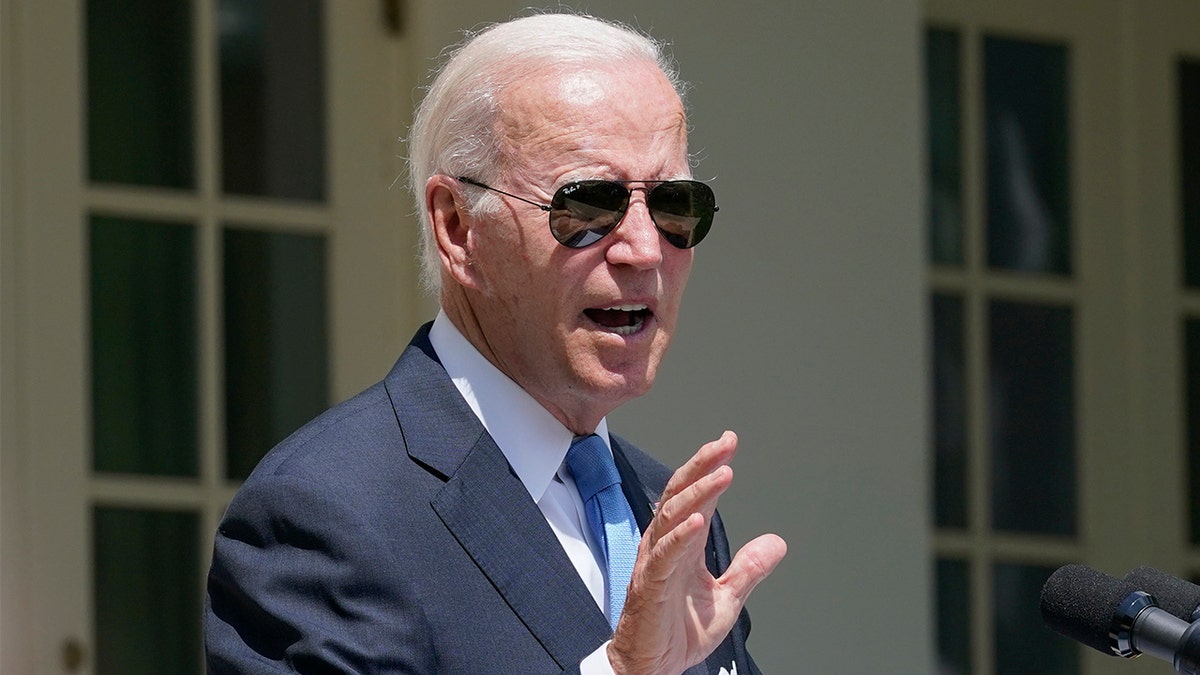
President Biden speaks in the Rose Garden of the White House, Wednesday, July 27, 2022. (AP Photo/Susan Walsh)
"Patients seeking reproductive care, as well as the providers who treat them, face an uncertain landscape of laws," the White House said.
The meeting Friday, according to the White House, connected the pro bono legal community to the reproductive rights, health and justice community.
Garland, during the convening, stressed that the Department of Justice is "working relentlessly to protect access to reproductive services" in recognition of "the crisis that it is." Garland also said the DOJ "will consider every tool at our disposal to affirm those protections."
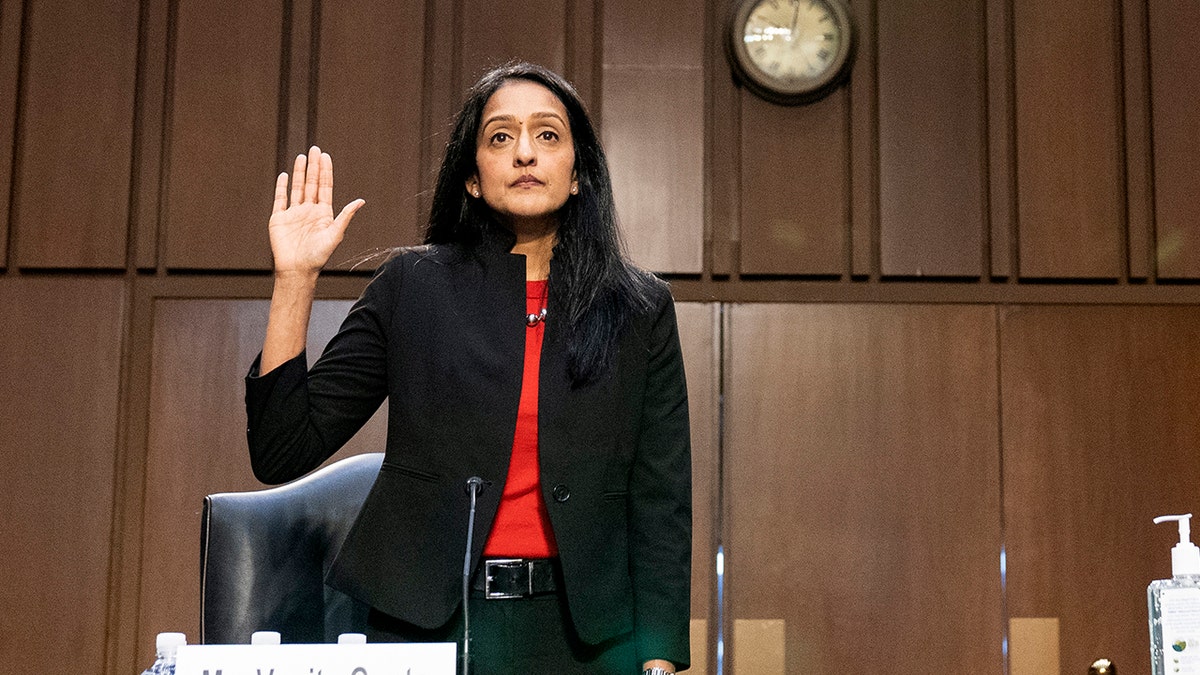
Vanita Gupta, nominated to be associate attorney general, is sworn in before a Senate Judiciary Committee hearing on Capitol Hill, March 9, 2021. (AP Photo/Alex Brandon)
And Gupta stressed that "it will take all of us – government lawyers, private pro bono attorneys, bar associations, public interest organizations – to do all we can to protect access to reproductive health care and to provide vigorous legal representation of patients, providers and third parties in need."
Delery, during the meeting, said that "lawyers across the country can help to turn the tide," while Emhoff closed the events with a call for lawyers to join the fight to defend reproductive rights and pursue justice for women.
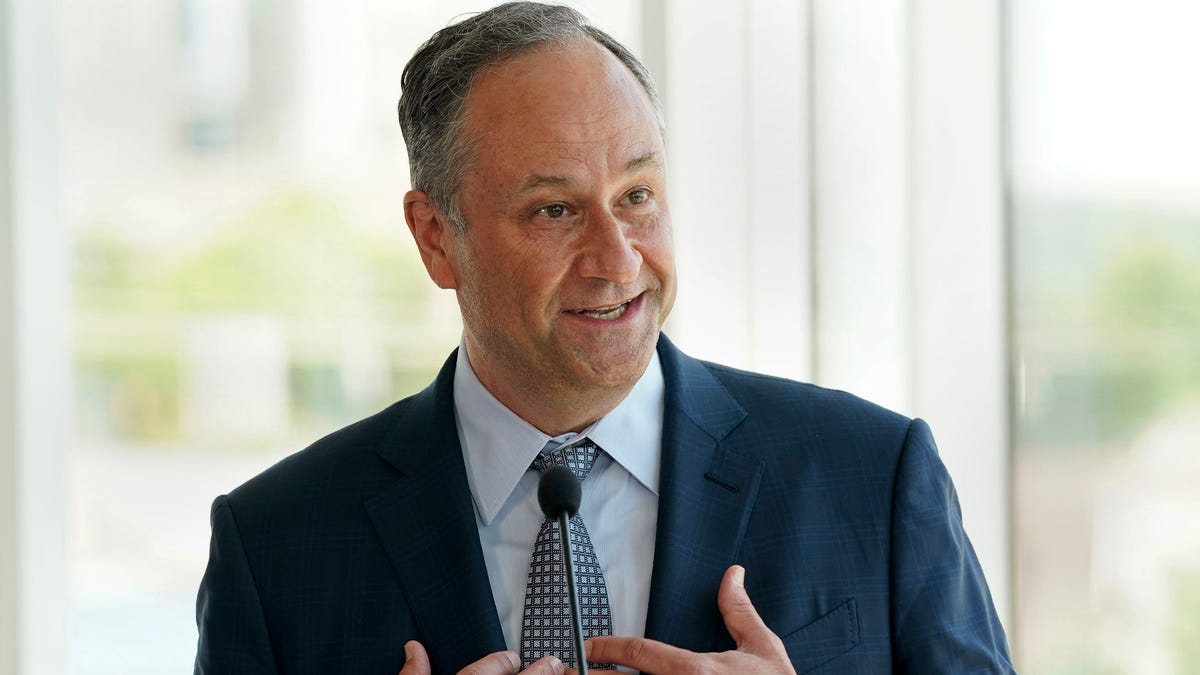
Doug Emhoff, husband of Vice President Kamala Harris, speaks at Union Station in Raleigh, North Carolina, on April 30, 2021. (AP Photo/Gerry Broome, Pool)
Biden last month signed an executive order to safeguard access to reproductive health care services, including abortion and contraception; protect the privacy of patients and their access to information; promote the safety and security of patients, providers and clinics; and coordinate the implementation of federal efforts to protect reproductive rights and access to health care.
The Biden administration also announced last month that the Department of Health and Human Services will take additional action to protect and expand access to abortion care, including access to medication that the FDA approved as safe and effective.
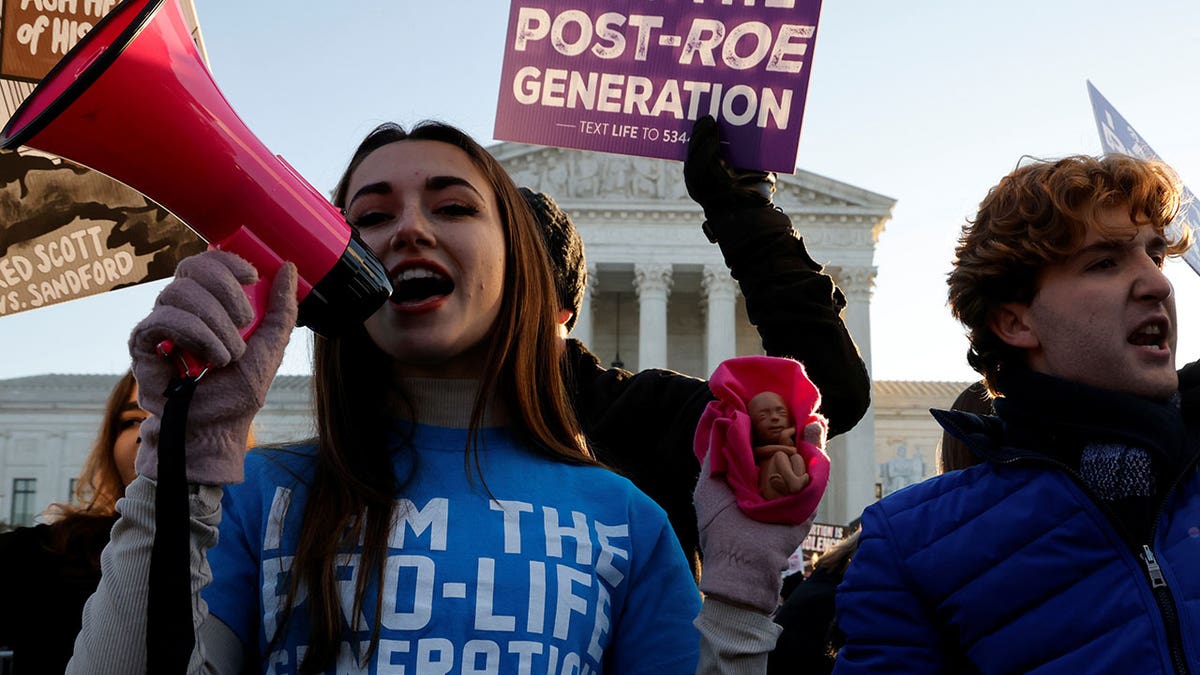
Pro-life demonstrators protest in front of the Supreme Court building on the day arguments were heard in the Mississippi abortion rights case Dobbs v. Jackson Women's Health, in Washington, Dec. 1, 2021. (Reuters/Jonathan Ernst)
The department is also set to take additional actions to expand access to emergency contraception and "long-acting reversible contraception like intrauterine devices (IUDs)."
Biden, beyond signing the executive order, has called on Congress to codify protections of Roe v. Wade into federal law.
Last month, Biden said the filibuster "should not stand in the way" of passing that type of legislation.
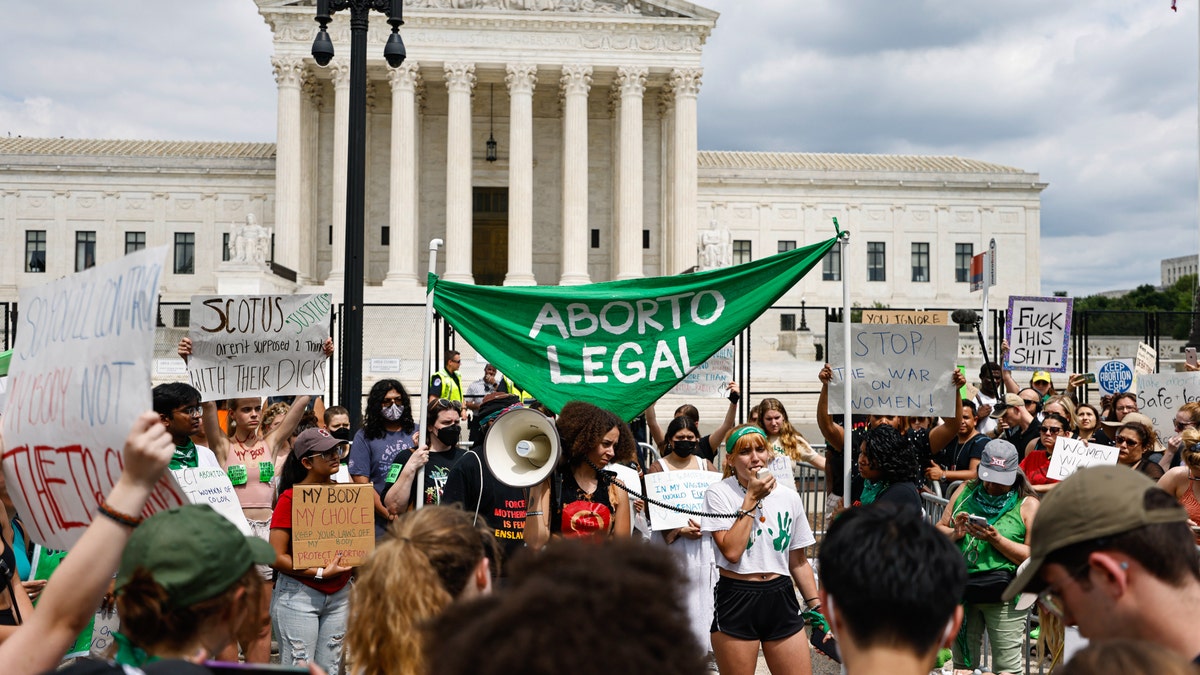
Pro-choice activists demonstrate in front of the Supreme Court in Washington. (Joshua Comins/Fox News)
Biden has previously called on Congress to codify Roe following the Supreme Court's June 24 ruling, but he had not called for ending the filibuster. Biden has only previously called for ending the measure during his effort to pass voting reforms, which did not succeed.
The filibuster is a threshold of 60 votes in the Senate that's necessary before a piece of legislation is given an up or down vote.
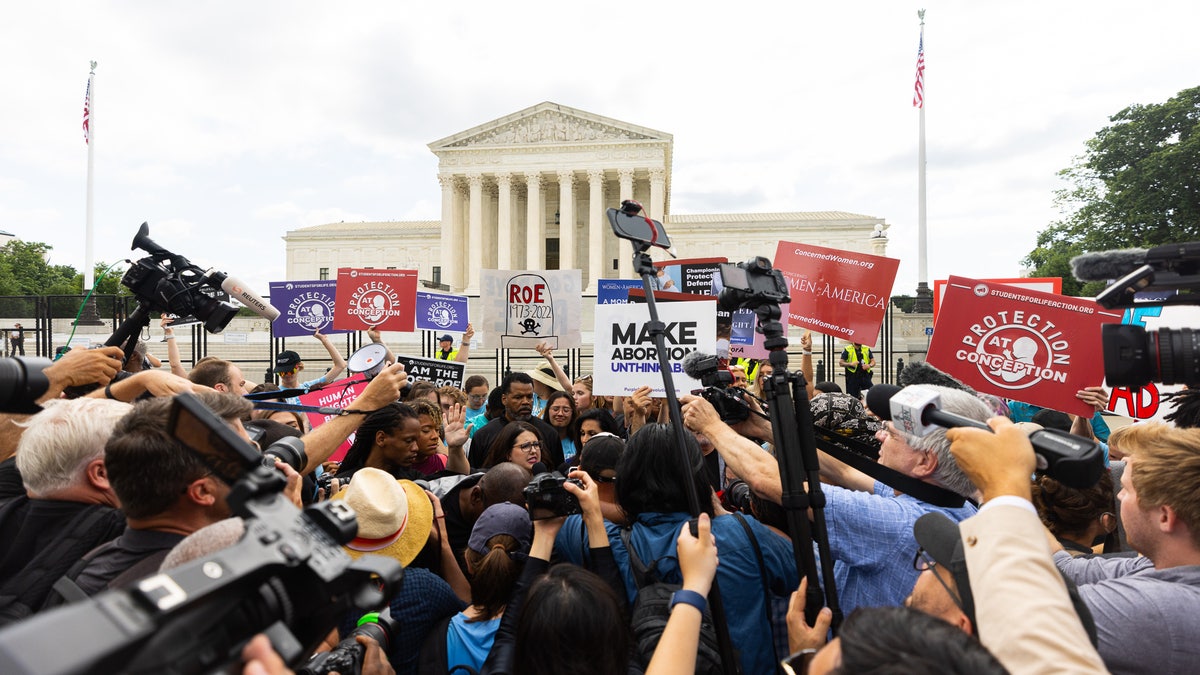
Crowds outside the Supreme Court react to the Dobbs ruling. (Joshua Comins/Fox News)
If Democrats wanted to establish a new filibuster precedent, they could do so with 51 votes – all 50 senators in the Democratic caucus, plus Vice President Harris breaking the tie.
CLICK HERE TO GET THE FOX NEWS APP
"But, right now, we don’t have the votes in the Senate to change the filibuster at the moment," Biden said, stressing that Democrats need more lawmakers elected in November to "get this bill to my desk."
"So, the choice is clear," Biden said. "Either elect senators and representatives who will codify Roe, or Republicans … will try to ban abortions nationwide. Nationwide."
"This is going to go one way or the other after November," he warned.














































